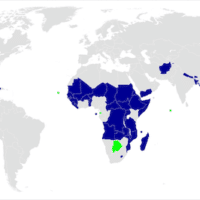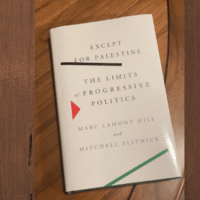-
The United States is the greatest Scofflaw
But the United States government is not alone here. It has several close allies, such as Canada, which is the home to 60 per cent of the world’s mining companies. Canada’s great interest in what lies beneath the soil of the Americas allows it to treat those who live above that soil with the greatest disdain.
-
10 charts on the State of U.S. workers on the 2nd pandemic Labor Day
While workers are continuing to struggle under Covid, corporate lobbyists are converging on Capitol Hill to block proposed pro-labor reforms.
-
China calls for investigation into U.S. massacres of civilians in Afghanistan
On Wednesday, September 1, Chinese Foreign Affairs Ministry spokesperson Wang Wenbin said that the massacres of civilians committed by the US military in Afghanistan during 20 years of occupation and war should be fully investigated.
-
Multinational Corporations and COVID-19: Intellectual property rights vs. human rights
The multilateral trading system anchored by the WTO is not confined to cross-border trade in physical goods.
-
Africa’s uprising is frozen, its cry swollen with hope: The Thirty-Fifth Newsletter (2021)
On 26 August, two deadly attacks on the perimeter of Kabul’s international airport killed over a hundred people, including a dozen U.S. soldiers. The bombings struck people desperate to enter the airport and flee Afghanistan. Not long afterwards, the Islamic State of Khorasan (IS-K) took credit for the attack.
-
How Amilcar Cabral shaped Paulo Freire’s pedagogy
Frantz Fanon’s influence on Paulo Freire’s thought is well known, but the Brazilian educator also drew considerably from Amílcar Cabral, the revolutionary intellectual from Guinea-Bissau.
-
Over two decades, U.S.’s global war on terror has taken nearly 1 million lives and cost $8 trillion
A new report from the Costs of War Project makes staggering estimates for the human and financial costs of the global forever wars.
-
Afghanistan withdrawal is a shock to the Israel lobby
Military occupations excite violent resistance throughout history. The U.S. has given up the fantasy of transforming Afghanistan. This removes Israel’s cover for its occupation and is generating panic among Israel’s friends.
-
5 years since the 2016 Coup: an Interview with Dilma Rousseff
The 2016 coup was ground zero. It was the inaugural act, but the process continues.
-
Imperialism then and now: Capital relocation, inequality, encroachment and protracted crisis – Part 3/3
Prabhat Patnaik shows that as capital is relocated, real wages do not rise, inequality widens, and global demand is suppressed. The system remains in protracted crisis; Keynesianism in the North alone is no solution. The struggle is everywhere.
-
Imperialism then and now: Drain of wealth, depression, the role of the State and globalization – Part 2/3
Imperialism which existed in the colonial era persists to this day and the system cannot do without it.
-
Insane U.S. plan to spend billions on weaponizing space makes defense contractors jump for joy—but rest of World cowers in horror at prospect of new arms race leading to World War III
And yet far worse is to come—unless there is a return to the vision of the Outer Space Treaty of 1967. The latter needs to be expanded, U.S. Space Force dismantled, and a full global commitment made to keep space for peace.
-
Allow least developed countries to develop
The pandemic is pushing back the world’s poorest countries with the least means to finance economic recovery and contagion containment efforts. Without international solidarity, economic gaps will grow again as COVID-19 threatens humanity for years to come.
-
China’s top court says grueling ‘996’ work schedule illegal
The Supreme People’s Court published a set of labor-related disputes to clarify legal standards of working hours and overtime wages.
-
Except for Palestine: The Limits of Progressive Politics – Book Review
“Except for Palestine” is a remarkable little book. Within it, the authors Hill and Plitnick present the larger picture that the self-proclaimed progressive “universal” values of the United States are argued for in many troubled spots of the world, except for Palestine.
-
Supreme Court ended eviction moratorium, but pandemic has shown road map for fighting back
The Supreme Court callously ended the CDC’s eviction moratorium, but the pandemic has already shown the most effective way to fight back: direct actions.
-
On the road to dictatorship?
Where there is smoke, there is fire, goes the popular saying. Most Brazilians and world public opinion know that Brazil is governed by a man of fascist convictions. Bolsonaro always praises the torturers of the military dictatorship implanted in Brazil in 1964 and regrets that “at least 30,000 subversives” were not shot.
-
Harm reduction guided by the goal of the abolition of prisons and capitalism: an interview with former Direct Action member and ex-prisoner Ann Hansen
I am active with the Prison for Women (P4W) Memorial Collective which has been fighting for a Memorial Garden at the site of the now closed Prison for Women, and a Gallery where the women’s art and writing can be seen in order to give some context to their lives and deaths. We also agitate to improve prison and parole conditions as a harm reduction tactic in order to alleviate some of the suffering, but always within the context of the abolition of prisons and capitalism as the goal, the light that guides us through the darkness.
-
Nicaragua at a revolutionary crossroads and in imperialist crosshairs
U.S. attack on Nicaragua targets its Black community.
-
Chip wars or the crisis of late capitalism?
If the U.S. wants to be a world leader, it has to match China in investing in knowledge generation for future technology. Why then is the U.S. taking the sanctions route? Sanctions are simpler to implement; building a society that values knowledge is much more difficult. This is the crisis of late capitalism.

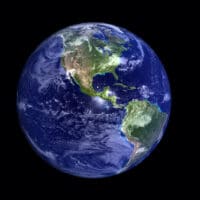
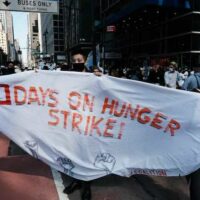
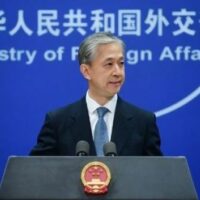
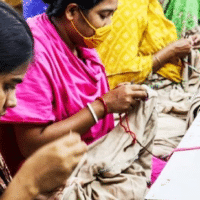
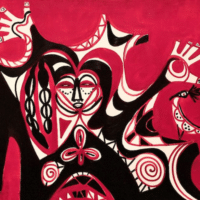
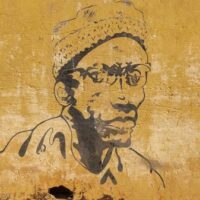



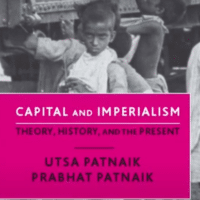
![Weapons are already being developed for the first space war. [Source: thesun.co.uk]](https://mronline.org/wp-content/uploads/2021/09/weapons-are-already-being-developed-for-the-first-200x200.jpeg)
